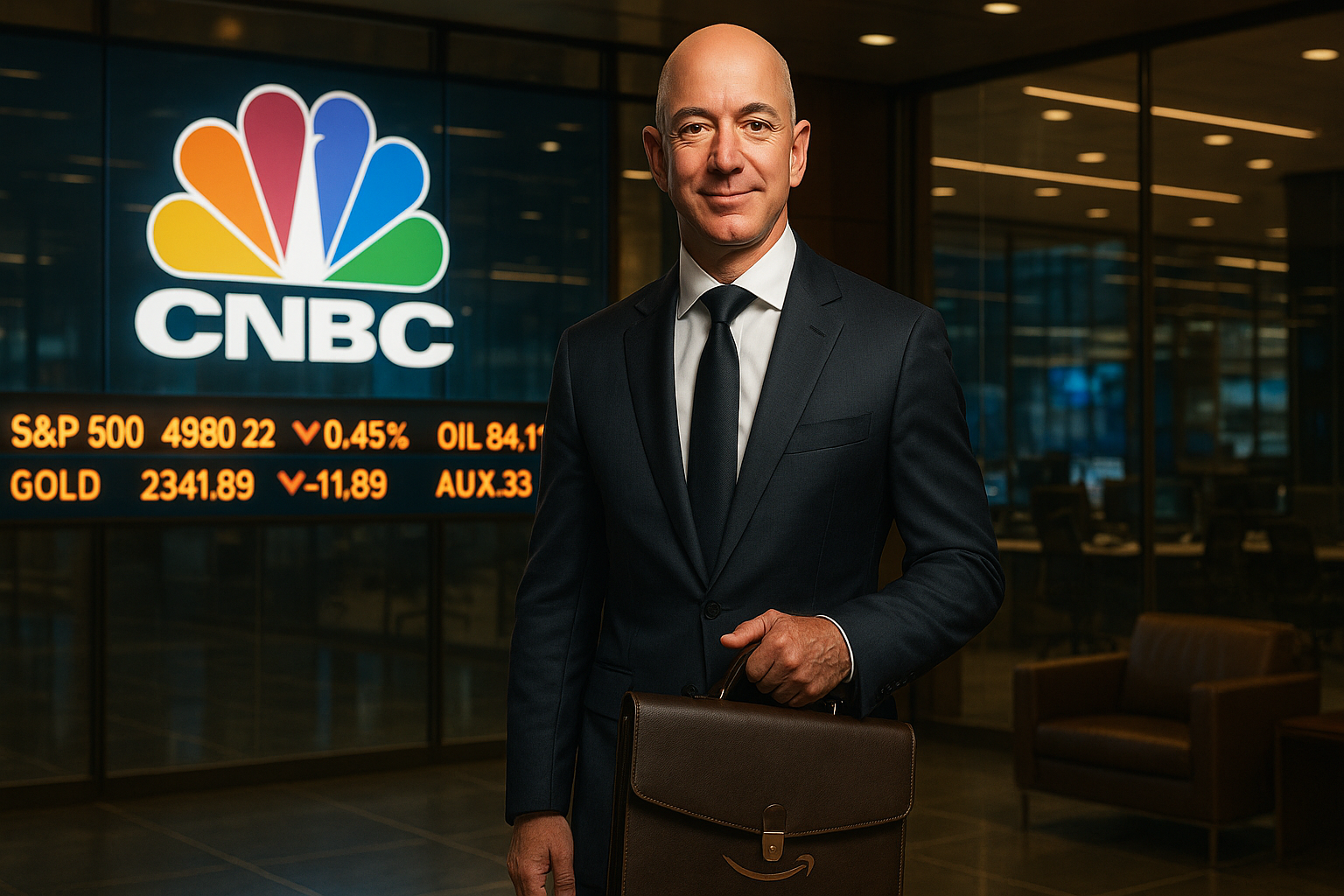Jeff Bezos might be shopping for something bigger than books these days.
The Amazon founder—whose personal fortune could probably buy a small country—has reportedly been kicking the tires on a potential acquisition of CNBC, according to several sources with knowledge of the discussions. And yeah, that's exactly the kind of bombshell that makes both media and Wall Street types choke on their morning coffee.
These talks are apparently still in the early stages. Embryonic, even. But the mere possibility of Bezos adding the financial news powerhouse to his collection (which already includes The Washington Post) has set off a firestorm of speculation across the industry.
Look, when Bezos scooped up the Post back in 2013 for a mere $250 million—pocket change for a guy worth north of $200 billion—many wondered what a tech titan wanted with an old-school newspaper. In retrospect, that purchase seems almost quaint compared to what acquiring CNBC would represent.
"Bezos has long maintained an interest in influential media properties," one source told me, speaking on condition of anonymity because, well, billionaires don't appreciate having their business plans splashed across headlines before they're ready.
CNBC isn't just another cable channel. Since its founding in 1989, it's become something of a holy text for the financial crowd—the background noise in every trading floor and the first thing many executives flip on with their morning coffee. It's financial journalism's equivalent of a watering hole where the business elite gather.
Why would Bezos want it? (Besides the obvious answer that billionaires collect things like the rest of us collect streaming subscriptions.)
There's the influence factor. Having covered media acquisitions for years, I've watched how ownership of major news outlets offers a kind of soft power that's impossible to quantify but equally impossible to ignore. For a man whose business interests stretch from e-commerce to cloud computing to space exploration, controlling the network that shapes business narratives offers... possibilities.
Media analyst Jennifer Carstensen put it more bluntly: "This would be about influence as much as investment."
The timing isn't accidental. Traditional networks are facing an existential squeeze, caught between the decline of cable subscriptions and the rise of streaming. CNBC has managed this transition better than most—their CNBC Pro subscription service has found its audience—but the long-term trends still point toward disruption.
Comcast, CNBC's current parent through NBCUniversal, is staying tight-lipped. Their spokesperson offered that classic non-statement statement: "We don't comment on rumors or speculation regarding potential business transactions." Bezos's people haven't even bothered responding to inquiries. (I've reached out three times. The silence speaks volumes.)
Any deal would face a regulatory obstacle course that would make American Ninja Warrior look like a kiddie playground. The Biden administration has signaled a much tougher stance on media consolidation, particularly when tech billionaires are involved. And honestly? That scrutiny isn't entirely unwarranted in an era when a handful of individuals control increasingly large portions of our information ecosystem.
For now, these discussions remain preliminary—whispers in boardrooms rather than signatures on contracts. But in my twenty-plus years covering media, I've learned that where there's smoke, there's usually at least a match being struck.
The question isn't just whether Bezos will add CNBC to his shopping cart. It's what it means for financial journalism if he does.
